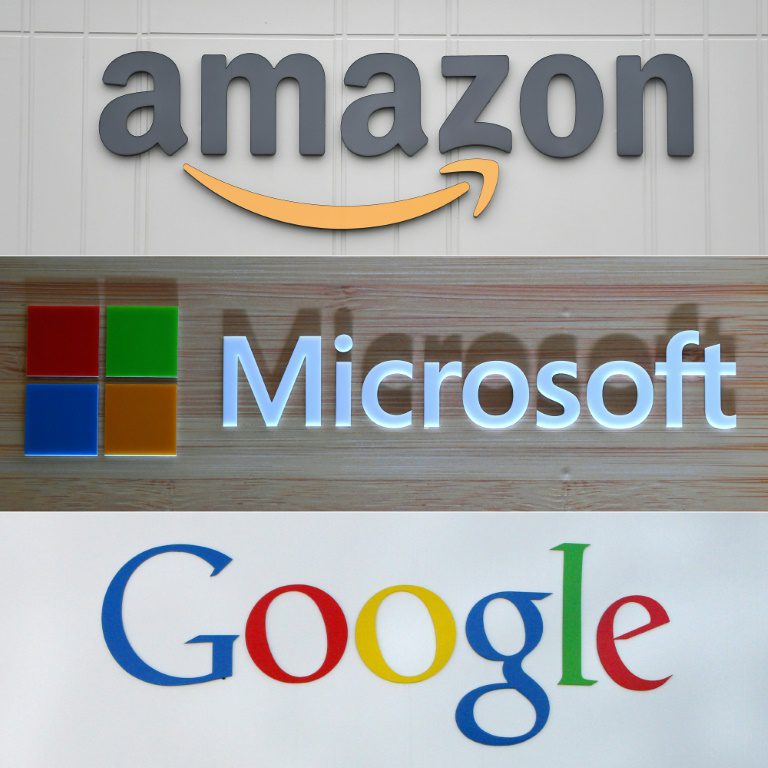TL;DR:
- Silicon Valley giants are racing to dominate the generative AI market.
- Having an AI strategy is now crucial for business survival.
- Alphabet’s profit soars, but Google Cloud underperforms, causing a stock drop.
- Generative AI’s future lies in the cloud, with Microsoft, AWS, and Google Cloud leading.
- High costs are associated with microprocessors needed for AI processing.
- Nvidia’s GPUs play a pivotal role in the rapid advancement of generative AI.
- Intel is striving to catch up with Nvidia in AI processing power.
- Amazon invests heavily in Anthropic, a rival to OpenAI, emphasizing Bedrock for generative AI.
- Apple is making significant investments in generative AI, particularly for Siri.
- The AI market is in its early stages, with no clear laggards.
Main AI News:
As Silicon Valley juggernauts, whether they are in the business of selling smartphones, advertising space, or cutting-edge computer chips, strive to secure their positions in the burgeoning generative artificial intelligence (AI) market, investors are closely watching the competition unfold. According to independent industry analyst Jack Gold, having an AI strategy is now a business imperative: “If you’re a company, and you don’t have an AI message, you’re not going to be in business very long.”
The AI arena is currently the epicenter of tech innovation, with companies vying to outperform and out-hype one another. The playing field is vast, and there is room for a multitude of players to thrive. Over the past couple of weeks, major tech corporations have unveiled their corporate earnings reports for the third quarter of the year, with most surpassing analyst expectations. However, the spotlight on Wall Street has shifted towards their plans for generative AI, with particular attention on the success of ChatGPT, OpenAI’s chatbot interface that captivated the world when it was launched a year ago.
Alphabet, the parent company of Google, reported a remarkable 42 percent increase in profit, reaching nearly $20 billion during the third quarter, surpassing market estimates. Despite this impressive performance, Alphabet’s shares experienced a decline of over 10 percent across two sessions due to underwhelming results from Google Cloud, which is perceived as not meeting investors’ expectations.
Max Willens, an analyst at Insider Intelligence, acknowledges the potential long-term benefits of Google Cloud’s credibility among AI startups but suggests that it may not be providing immediate satisfaction to investors. The battleground for generative AI primarily lies in the cloud, where these systems, capable of generating complex content like poems or scholarly essays within seconds, will be deployed.
Generative AI, often likened to a seismic shift akin to the internet’s advent, relies on large language models that compile extensive datasets to create content. Tech giants like Microsoft, Google, and Meta have invested in training their own models. Cloud service providers, led by Microsoft’s Azure, Amazon Web Services (AWS), and Google Cloud, are gradually monetizing AI, even though the costs remain relatively high at present, as noted by Yory Wurmser, another analyst at Insider Intelligence.
The primary cost factor is associated with the microprocessors required for data processing. Nvidia, a prominent chipmaker, strategically invested in developing graphics processing units (GPUs) years ago, which have since become a critical component in the rapid advancement of generative AI.
Jack Gold emphasizes the importance of understanding how AI will be used, predicting that “probably 80 or 90 percent of all workloads will be inference workloads,” referring to the routine operation of AI models once they are created. To catch up with rivals, especially Nvidia, in terms of powerful chips necessary for handling AI processing demands, U.S. chip giant Intel has been diligently working on enhancing its offerings.
Intel’s CEO, Pat Gelsinger, believes that “the inferencing use of those models is what we believe is truly spectacular for the future” and highlights the role of Intel’s processors, known as Xeons, in this regard. Amazon, on the other hand, is set to invest up to $4 billion in Anthropic, a competitor to OpenAI, underscoring the significance of its Bedrock service for constructing generative AI applications.
Amazon CEO Andy Jassy points out the complexity of selecting the right AI models while managing costs and emphasizes how Bedrock simplifies decision-making in this regard. Even Apple, typically reluctant to follow trends, is making substantial investments in generative AI, according to Apple CEO Tim Cook, though he refrains from divulging specific details. Observers anticipate significant developments from Apple, especially concerning its digital assistant Siri, which has seen limited evolution in recent years. Amazon, on the other hand, has announced plans to gradually enhance the AI capabilities of its Siri counterpart, Alexa.
Carolina Milanesi, an analyst at Creative Strategies, emphasizes that no company is lagging behind at this early stage of a market that demands substantial investment and commitment, starting with the enterprise sector before reaching consumers. The AI race is on, and it’s a race where every participant has the potential to emerge as a winner.
Conclusion:
The race for dominance in the generative AI market is intensifying among tech giants. While profits soar for some, like Alphabet, concerns about Google Cloud’s performance highlight the competitive nature of this space. Cloud providers are at the forefront of monetizing AI, albeit with high costs. Investments in microprocessors and innovative solutions, such as Nvidia’s GPUs and Amazon’s Bedrock, are crucial for success. The market is in its infancy, and all major players have an opportunity to shape its future.

